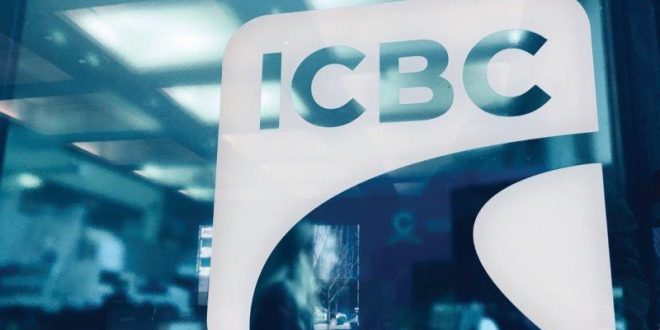By Cedric Hughes
Despite the number of crashes, fatalities, and injuries macro-trending in the right direction—downward,despite significant advances in injury treatment and post-accident therapies, despite sturdier, more crashworthy vehicles,most drivers will have noticed that the macro-trend for their car insurance premiums has gone the opposite direction. And yet, says the Insurance Corporation of British Columbia (ICBC), not upwards enough to prevent it from suffering its most recently recordedannual 1.3-billion-dollar loss.ICBC advances two reasons: ever higher payouts for accident benefits, especially payouts for minor injury claims, and car repair costs at all-time highs. Changes are needed—including the need to ensure that consequent rate setting rules for insurance premiums are as fair as possible—and changes are coming.
All British Columbians who are injured in a crash, whether or not they were ‘at fault’may receive ICBC accident benefits. These benefits cover the costs of medical treatment, rehabilitation, wage loss, and may extend to covering the costs of home care, prescriptions, and medical devices. Compensation for ‘pain and suffering’, a legal term for the physical and emotional stress caused by the ordeal of the injury is also a component of the total accident benefits paid.Of course, not all injuries are to the same degree.
For insurance purposes, the more superficial or surface injuries—injuries from which full recovery can be expected—are classified as ‘minor injuries. A recent cabinet order has been signed designating the category of ‘minor injuries’ to include “sprains, strains, aches, cuts, bruises, minor whiplash …, concussions and mental health issues.” Serious injuries—the other classification, range from fractures and broken bones all the way to more catastrophic, life-altering outcomes.
Comparing the increases in average claims paid out (AC)for serious injuries and minor injuries in 2000 vs 2016 says it all: a 27% AC increase for serious injuries —$38,014 in 2000 to $48,078 in 2016; a whopping 265% AC increase for minor injuries —$8,220 in 2000 to $30,038 in 2016.Drilling down into theseACs shows that approximately half are advanced by claimants with legal representation. Represented claims generally take longer to settleand incur additional costs for more expert reports and medical resources. Of the AC for a minor injury, approximately 25% covers wage loss and medical care, 55% ‘pain and suffering’, and 20% for legal costs. In short: ever-increasing settlements for pain and suffering in minor injury claims, plus legal representation costs are the main cause of the overall increase in accident benefits.
To address this problem, changes to ICBC accident benefit coverage have been designed with two aims in mind: to increase care for injured claimants, and to reduce legal costs. Effective January 1, 2018, medical care and recovery benefits have been doubled from $150,000 to $300,000; and, coming soon, effective April 1, 2019 benefits will also increase for treatment cost recovery, wage loss recovery, homemaking, funeral expenses, death benefits to surviving family members, and will extend to more types of treatment. But payouts for ‘pain and suffering’ on minor injury claims only will be limited on any new claims to a maximum recovery of $5,500. To address reducing legal representation costs, a new independentdispute resolution processwill enable claimants who disagree with ICBC to seek resolution from the Civil Resolution Tribunal (CRT) on certain issues, namely: determining that an injury is a minor injury,entitlement to receive accident benefits claimed, and who is at-fault in the crash and settlement amounts for all injury claims below $50,000.
Despite the above-noted downward macro-trend in the numbers,the new record high cost of car repairs, is a function in BC of an increase in the number of vehicle damage claims—up 20% from 2014 to 2017— and the actual repair costs. Of the $1.5 billion ICBC spends annually on goods and services, over half goes to vehicle repair costs.Policies and programs involving the 620 ICBC-accredited collision repair shops and 500 glass repair shops across the province need modernizing, says ICBC. The changes are designed to reflect advances within the industry and recognize supplier investment in technician training, certification programs, advanced repair equipment, and value-added customer service.
As for the need to ensure that the necessary consequent changes in rate setting rules for insurance premiums are fair, starting September 1, 2019, basic insurance premiums will be re-set to better reflect the risk drivers represent. Generally, the goal is to better reward lower-risk drivers for their safe driving behaviour; higher-risk drivers, on the other hand, will pay a higher proportion of the costs. This new ‘fairer’ model will be based ona number of factors:the driver, the vehicle, and whether or not any discounts or other options apply. A driver’s history, how long and how many crashes it includes will have a greater impact on setting premiums than previously. Key changes are the need to list all drivers of the vehicle to more accurately reflect the risk involved; the attachment of at-fault crashes directly to drivers and not to vehicle owners; more discounts for more years of no at-fault driving crashes; and changes for credits for new residents from their previous out of province driving history. Where a vehicle is primarily located and driven, and the purposes for which it is driven—factors respectively called ‘territory’ and ‘rate class’ —will also be adjusted gradually over the next 10 years to recognize the changes in communities— traffic density, population growth, and infrastructure development—and vehicle use across the province.
In addition to these changes specific to insurance premiums and coverage, ICBC is also taking measures already underway or planned to relieve the pressure on rates and deal with the rising number of claims. These include reviewing all its operations and practices, doubling the premiums of vehicles valued at more than $150,000, increasing efforts to combat fraud, an launching a windshield repair program. It should also be noted that ICBC is a Crown Corporation and, reportedly, the BC government has, over time, taken large amounts of money from ICBC reserve funds to help run the province.
For more detail on these important changes, the ICBC website is a great resource:www.icbc.com/about-icbc/changing-auto-insurance-BC/.
 Desi Today Magazine
Desi Today Magazine




